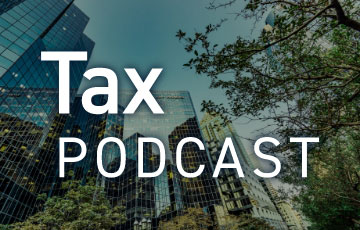Newly proposed legislation, the Tax Relief for American Families and Workers Act of 2024 (the Act), could potentially move the deadline for the Employee Retention Credit (ERC) claim submissions to the end of January 2024. Introduced on January 16, 2024, by Senate Finance Committee Chairman Ron Wyden (D-Oregon) and House Ways and Means Committee Chairman Jason Smith (R-Missouri), the legislation could have major impacts to a variety of tax incentives for businesses and individuals.
Employee Retention Credit (ERC) Immediate Sunset
Under the current law, taxpayers can claim COVID-related ERC until April 15, 2024, for 2020 ERC claims and until April 15, 2025, for 2021 ERC claims. If passed, the Act would bar additional claims after January 31, 2024.
Research & Development (R&D) Deductibility
The current deductibility of domestic specified research expenditures beginning after December 31, 2021, and before January 1, 2026 (instead of requiring amortization over five years). The proposal delays the date for required capitalization of domestic research or experimental costs over a five-year period until taxable years beginning after December 31, 2025.
This may be administratively problematic for companies that have already filed their U.S. tax returns for the 2022 tax year.
Child Tax Credit Enhancement
The Act expands the Child Tax Credit for three years and includes an increase to the current cap:
| Year | Tax Credit Cap |
| 2023 | $1,800 |
| 2024 | $1,900 |
| 2025 | $2,000 |
The cap is inflation adjusted beginning in 2024.
Low-Income Housing Credit Enhancements:
In the 2018 through 2021 calendar years, the 9% Low-Income Housing Tax Credit (LIHTC) ceiling was increased by 12.5%, which allowed for states to allocate more credits for affordable housing projects. The Act would restore the 12.5% increase for calendar years 2023 through 2025 for taxable years beginning after December 31, 2022.
Extension of Bonus Depreciation
Qualified property acquired and placed in service after September 27, 2017, and before January 1, 2023, is currently eligible for 100% bonus depreciation with a 20% per year phase out after that.
The Act would eliminate the 20% reduction per year and extends 100% bonus depreciation for qualified property placed in service after December 31, 2022, and before January 1, 2026. The Act retains 20% bonus depreciation for property placed in service after December 31, 2025, and before January 1, 2027.
Increase Limitations on Expensing of Depreciable Business Assets
Under Section 179, a taxpayer may elect to expense the cost of qualifying property, rather than to recover such costs through tax depreciation deductions, subject to limitation. The current maximum amount a taxpayer may expense is $1 million of the cost of qualifying property placed in service for the taxable year. The $1 million amount is reduced by the amount by which the cost of such property placed in service during the taxable year exceeds $2.5 million. The $1 million and $2.5 million amounts are adjusted for inflation for taxable years beginning after 2018, and were $1.16 million and $2.89 million in 2023, respectively.
The Act increases the maximum amount a taxpayer may expense to $1.29 million, reduced by the amount by which the cost of qualifying property exceeds $3.22 million. The $1.29 million and $3.22 million amounts are adjusted for inflation for taxable years beginning after 2024 for property placed in service in taxable years beginning after December 31, 2023.
Final Thoughts
The time to implement the Act as a standalone bill or part of a stopgap spending bill is short and many of the retroactive provisions would require taxpayers to file amended income tax returns. We will continue to monitor the Act’s progress through both houses of Congress.
Proposals related to Increasing Global Competitiveness and Assistance for Disaster-Impacted Communities are not addressed in this summary.
Your Guide Forward
Please reach out to Cherry Bekaert’s Tax Credits & Incentives Advisory practice today if you have any questions.
Related Insights
Understanding IRS’ Voluntary Disclosures Program for Employee Retention Credit (ERC) Claims
Updated Guidance on R&D Expenditures: Notice 2024-12 and Rev. Proc. 2024-9






